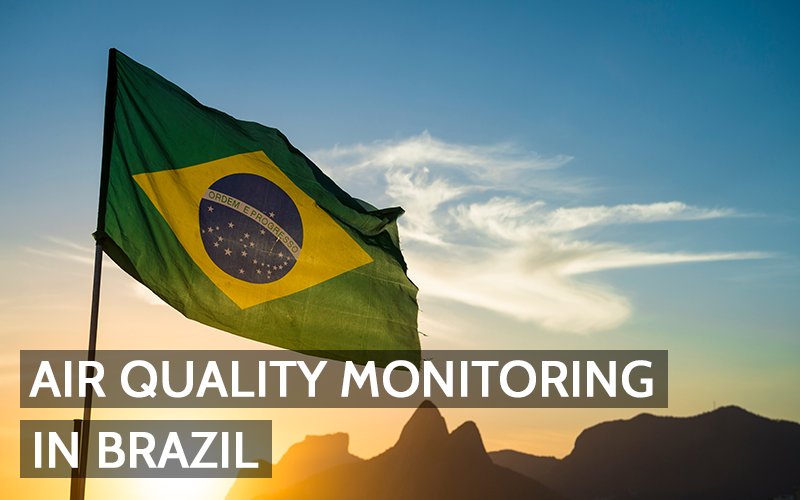Air quality monitoring is a critical component of environmental management, especially in rapidly developing nations like Brazil. The responsibility for monitoring air quality in Brazil is primarily held by the central government, with significant involvement from both federal and state agencies.
Government Responsibility and Monitoring Programs
The Brazilian government has established a comprehensive framework for air quality monitoring. At the federal level, the National Environmental Council (Conama) plays a pivotal role in regulating air quality. Key legislations include Conama Resolution No. 5/1989, which inaugurated the National Air Quality Control Program (Pronar), and Conama Resolution No. 491/2018, which set forth National Air Quality Standards1.
State environmental agencies are responsible for implementing and managing their own monitoring systems. For instance, the São Paulo State Environmental Company (CETESB) operates an extensive network of monitoring stations across the state, providing real-time data on various pollutants. Other states have their own agencies and monitoring networks tailored to regional needs.
Air Quality Standards
Brazil’s air quality standards are defined by Conama Resolution No. 491/2018, which aligns with the World Health Organization’s (WHO) guidelines from 2005. These standards set permissible limits for key pollutants, including particulate matter (PM10 and PM2.5), ozone (O3), nitrogen dioxide (NO2), sulfur dioxide (SO2), and carbon monoxide (CO). The resolution also introduces interim targets to progressively reduce pollution levels, aiming to achieve the final standards over time2.
Future Plans and Initiatives
Recognizing the need for continuous improvement, Brazil has initiated several plans to enhance air quality monitoring and management:
- National Air Quality Management System (MonitoAr): Approved in May 2024, MonitoAr is a federal initiative aimed at providing real-time air quality information to the public and state officials, facilitating informed decision-making and immediate responses to pollution levels1.
- Alignment with Updated WHO Guidelines: In collaboration with organizations like the Environmental Defense Fund (EDF), Brazil is working to update its air quality standards to align with the latest WHO guidelines by 2024, following a recent Supreme Court mandate3.
- Expansion of Monitoring Networks: Efforts are underway to expand and modernize air quality monitoring networks across the country. For example, the city of Jundiaí has announced an innovative new air quality monitoring program, utilizing advanced sensors to provide real-time data4.
Private Sector Involvement
While the primary responsibility for air quality monitoring lies with government agencies, the private sector also plays a supportive role. Private companies and non-governmental organizations (NGOs) often collaborate with government entities to provide technical expertise, funding, and innovative technologies. For instance, the Instituto de Energia e Meio Ambiente (IEMA) has developed an Air Quality Platform that gathers and standardizes air quality monitoring data generated by the government in Brazil5.
Challenges and Opportunities
Despite these initiatives, Brazil faces challenges in air quality management:
- Data Gaps: There is a need for more comprehensive and continuous data collection to fully understand pollution patterns and sources. Studies have highlighted the scarcity of air quality data, which hinders policy decisions regarding public health and environmental impacts6.
- Urbanization and Industrialization: Rapid urban growth and industrial activities contribute to increased emissions, necessitating stricter controls and innovative solutions.
- Public Awareness: Educating the public about air quality issues and encouraging community involvement are essential for the success of monitoring programs.
Addressing these challenges presents opportunities for Brazil to enhance its air quality monitoring systems. By leveraging advancements in technology, fostering public-private partnerships, and aligning with international standards, Brazil can improve air quality and safeguard public health.
Air quality monitoring in Brazil is a collaborative effort led by government agencies, with support from private entities and NGOs. The country has established robust standards and is actively working to enhance its monitoring capabilities. Ongoing initiatives aim to align with global guidelines and address emerging challenges, reflecting Brazil’s commitment to environmental sustainability and public health.
If you enjoyed this article you may also like
References
- https://breathelife2030.org/news/brazil-approves-national-air-quality-management-system-monitoar/
- https://www.scielo.br/j/jbchs/a/PfgQRYrhznqJ6P7NHpjSkgG/
- https://globalcleanair.org/climate/edf-partners-with-brazils-ministry-of-environment-and-climate-change-on-strategy-to-update-air-quality-standards/
- https://www.clarity.io/blog/jundiai-brazil-announces-innovative-new-air-quality-monitoring-program
- https://energiaeambiente.org.br/iemas-air-quality-platform-is-the-source-of-brazilian-data-for-whos-database-20220621
- https://link.springer.com/article/10.1007/s10661-023-11654-3


